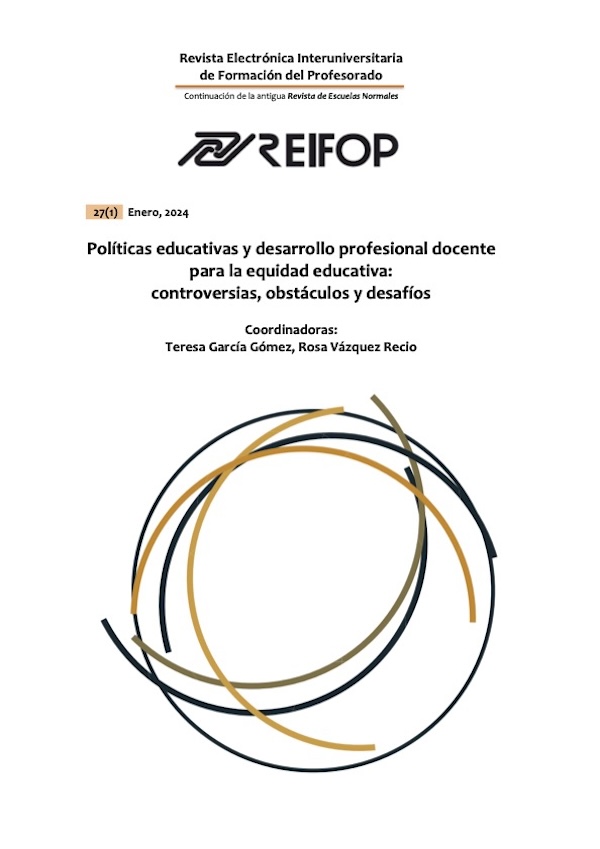An analysis of problems of coexistence in schools in Catalunya. Suggestions for improvements
Abstract
This article aims to analyse the main conflicts that occur in infant and primary schools (from the ages of 3 to 12) in Catalunya, and the mechanisms schools use to prevent and resolve them.
A 30-question digital questionnaire was sent to school management teams in Catalunya and 481 replies were received.
The results showed a low level of conflict, with minor conflicts attributed to external causes, especially highlighting the inconsistencies between the values imparted in schools and in society. They also showed that proposals for improving coexistence are varied (curricular, organizational, professional and community-based) and that, for them to succeed, the participation of teachers and the motivation, awareness and leadership of management teams are essential.
Finally, the following areas of interest should continue to be studied: the importance of leadership; the need to share valuable school experiences; and the importance of initial teacher training in dealing with conflicts in schools.
Downloads
-
Abstract903
-
pdf (Español (España))555
References
Álvarez García, D.; Dobarro, A.; Álvarez, L.; Núñez, J.C., Rodríguez, C. (2014). School violence in Secondary schools in Asturias from the perspective of students. Educación XX1, 17 (2):337-360. https://doi.org/10.5944/educxx1.17.2.11494
Aramendi, P. & Ayerbe, P. (2009). Aprender a convivir: un reto en la educación secundaria obligatoria. Educación y diversidad, 3:61-105.
Cerda, G., Pérez, C., Elipec, P., Casas, J.A., Del Rey, R. (2018). Convivencia escolar y su relación con el rendimiento académico del alumnado en Educación primaria. Revista de Psicodidáctica, 24(1):46-52 https://doi.org/10.1016/j.psicod.2018.05.001
Contreras-Rodríguez, S., Colón-Luna, N., Gonzales-Montalvo, C., Machado-De la Cruz, P., Melo-Vásquez, M., Vergara-Luna, M. (2018). Convivencia escolar y solución de conflictos mediante la investigación como estrategia pedagógica. Cultura. Educación y Sociedad, 9(3):63-72. http://dx.doi.org/10.17981/cultedusoc.9.3.2018.07
Córdoba, F., Del Rey, R., Ortega, R. (2016). Conflictividad: un estudio sobre problemas de convivencia escolar en Educación Primaria. Temas de Educación, 22(2):189-205. Retrieved from https://revistas.userena.cl/index.php/teduacion/article/view/806
Fierro-Evans, C. & Carbajal-Padilla, P. (2019). Convivencia escolar: Una revisión del concepto. Psicoperspectivas, 18(1):1-14. http://dx.doi.org/10.5027/psicoperspectivas-vol18-issue1-fulltext-1486
Fuentes. L., Pérez, L. (2019). Convivencia escolar: una mirada desde las familias. TELOS. Revista de Estudios Interdisciplinarios en Ciencias Sociales, 21(1):61-85, Retrieved from https://dialnet.unirioja.es/servlet/articulo?codigo=6773126
Gallardo Ceron, B.N., Hernández Zuluaga, G.D., Monsalve Giraldo, M.I., Barrientos Burgos, H.R. (2019). Convivencia, conflicto y pacto, hacia la construcción participativa de escenarios de convivencia escolar. Revista Electrónica En Educación Y Pedagogía, 3(5):62-75. https://doi.org/10.15658/rev.electron.educ.pedagog19.09030504
Hernández Prados, M.Á., Penalva López, A., Guerrero Romera, C. (2020). Profesorado y convivencia escolar: necesidades formativas. Magister: revista de formación del profesorado e investigación educativa. https://doi.org/10.17561/reid.n20.3
Kelly, D.R. (2017). Methods for reducing violence in schools: A systematic review. Journal of Educational and Developmental Psychology, 7(1):200-209. https://doi.org/10.5539/jedp.v7n1p200
Merma-Molina, G., Ávalos Ramos, M.A., Martínez Ruiz, M.A. (2019). ¿Por qué no son eficaces los planes de convivencia escolar en España? Revista de Investigación Educativa, 37(2):561-579. http://dx.doi.org/10.6018/rie.37.2.313561
Mullet, J.H. (2014). Restorative discipline: From getting even to getting well. Children & Schools, 36(3):157-162. https://doi.org/10.1093/cs/cdu011
Ortega-Ruiz, R., Del Rey, R., Casas, J.A. (2016). La Convivencia Escolar: clave en la predicción del Bullying. Revista Iberoamericana De Evaluación Educativa, 6(2):91-102. https://revistas.uam.es/riee/article/view/3406
Penalva López, A. (2018). La convivencia escolar. Un reto del siglo XXI. Revista Electrónica De Investigación Y Docencia (REID), 20:41-58. https://doi.org/10.17561/reid.n20.3
Ruiz, R.; Riuró, M., Tesouro, M. (2015). Study about bullying in the upper cycle of primary education. Educación XX1, 18(1):345-368. https://doi.org/10.5944/educXX1.18.1.12384
Serey, D., Zúñiga., P. (2020). School coexistence post COVID 19: A didactic proposal from the educational coaching. IJERI: International Journal of Educational Research and Innovation, (15):143–161. https://doi.org/10.46661/ijeri.5005
Sharkey, J.D., Fenning, P.A. (2012). Rationale for designing school contexts in support of proactive discipline. Journal of School Violence, 11(2):95-104. https://doi.org/10.1080/15388220.2012.646641
Tirado, R., Conde, S. (2016). Análisis estructural de la gestión de la convivencia escolar en centros de buenas prácticas de Andalucía (España). Educatio Siglo XXI, 19(2):153-178. https://doi.org/10.5944/educXX1.16459
Villagrasa, C. (2012). Los conflictos de derecho en el aula y las alternativas de gestión y resolución. Educatio Siglo XXI, 2:149-166. https://revistas.um.es/educatio/article/view/153731
Los artículos que se publican en esta revista están sujetos a los siguientes términos:
1. El Departamento de Métodos de Investigación y Diagnóstico en Educación de la Universidad de Murcia (España), junto con el Servicio de Publicaciones de la Universitdad de Murcia (Editum) son los editores de la revista REIFOP y conserva los derechos patrimoniales (copyright) de los artículos publicados, permitiendo la reutilización de las mismos bajo la licencia de uso indicada en el punto 2.
2. Las obras se publican en la edición electrónica de la revista bajo una licencia Creative Commons Reconocimiento-NoComercial-SinObraDerivada 3.0 España (texto legal). Se pueden copiar, usar, difundir, transmitir y exponer públicamente, siempre que: i) se cite la autoría y la fuente original de su publicación (revista, editores y URL de la obra); ii) no se usen para fines comerciales; iii) se mencione la existencia y especificaciones de esta licencia de uso.
3. Condiciones de auto-archivo. Se permite y se anima a los autores a difundir electrónicamente las versiones pre-print (versión antes de ser evaluada) y/o post-print (versión evaluada y aceptada para su publicación) de sus obras antes de su publicación, ya que favorece su circulación y difusión más temprana y con ello un posible aumento en su citación y alcance entre la comunidad académica. Color RoMEO: verde.















